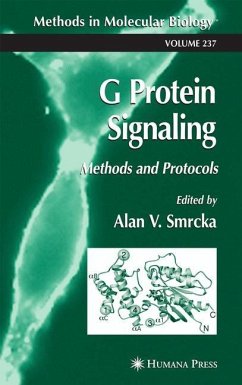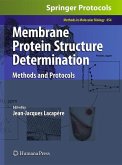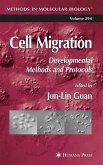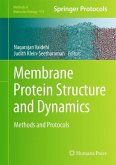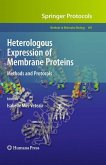G proteins and G protein-coupled receptors are ubiquitously expressed proteins that regulate a wide range of physiological processes and are consequently the targets of many pharmaceuticals. In G Protein Signaling: Methods and Protocols, leading researchers describe in detail key methods for investigating G protein signaling from a variety of perspectives ranging from in vitro biochemistry to whole animal studies. The authors focus on the mechanisms of G protein and G protein-coupled receptor function and the roles of G protein subunits in cell biology and disease. Among the readily reproducible techniques presented are those for the purification of G proteins and effector enzymes, assays of these purified G proteins and effector enzymes, and for the study of G protein interactions with effectors in intact cells. Additional methods are provided for assaying G protein-coupled receptor structure, function, and localization, for studying the physiological roles for endogenous G proteins, and for examining lipid and phosphate modifications of RGS proteins. Each fully tested protocol includes a background introduction explaining the principle behind the technique, equipment and reagent lists, tips on troubleshooting and avoiding known pitfalls, and, where needed, a discussion of the interpretation and use of results.
Comprehensive and highly practical, G Protein Signaling: Methods and Protocols offers novice and expert researchers alike an array of cutting-edge tools to illuminate the roles of G protein and G protein-coupled receptors, as well as a better understanding of their action with drugs, neurotransmitters, and sensory stimuli.
Comprehensive and highly practical, G Protein Signaling: Methods and Protocols offers novice and expert researchers alike an array of cutting-edge tools to illuminate the roles of G protein and G protein-coupled receptors, as well as a better understanding of their action with drugs, neurotransmitters, and sensory stimuli.

